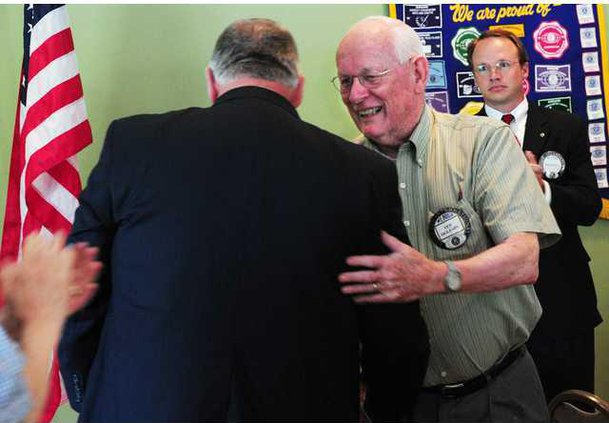Georgia House Speaker David Ralston said Tuesday he doesn't know how reapportionment maps will turn out for the state.
"But they're going to be fair, they're going to be sensible, and they're going to follow the law and be constitutional," he told the Gainesville Kiwanis Club.
The Blue Ridge Republican addressed several other touchy topics in his speech to the club, including the state's new immigration law, the newly pared-down HOPE scholarship program, tax reform and Georgia's budget woes.
On redrawing boundaries for a 14th U.S. House seat, he said Georgia has changed much in 10 years, or since the U.S. census prompted the last redrawing of lines.
"We've got a lot of counties, particularly in the southern part of the state that have lost population, and some of our cities have lost population," Ralston said. "And then, we've had counties, particularly in the northern third of the state that have gained population."
The House and Senate Legislative and Congressional Reapportionment committees are holding public hearings around the state on the issue, including one set for 4-6 p.m. June 21 at Brenau University's Hosch Theatre.
"Those of you who haven't been around (reapportionment) before, you ought to come watch it," Ralston said. "This is really where neighbor goes up against neighbor."
The speaker said the new maps won't resemble ones drawn by legislators in 2001, drawing applause and laughter from the crowd.
"No more inkblots and no more elephant-eared districts running around North Georgia so that one party can perpetuate its power ... for another decade," Ralston said.
"We're going to go through the process and do it in a proper way. I'm challenged by doing it," he added. "... This will be the first map that a Republican majority has drawn."
One issue that Ralston had hoped to resolve in this year's legislative session was tax reform.
"I believe ... that Georgia can be a real leader in this country, even more than we are, in terms of economic growth, by adopting a pro-small business, pro-job creation tax policy," he said.
Toward the end of the issue's debate in the General Assembly, concerns that "maybe we didn't have credible data" surfaced, Ralston said. "And so we had to pull the plug on it ... and that disappointed me.
"But I tell people that it wasn't the death of tax reform; it was just a delay. I'm hoping that we're going to come back and visit that later in the year and maybe next session."
Ralston went on to add, "Fundamental change is often hard to get accomplished, but I think this is fundamental change that Georgians will embrace ... and grow our state in a way the likes of which we have never seen."
He also reflected on a couple of major issues that drew vocal critics to Atlanta this past session.
Limits were placed on the HOPE scholarship, giving only the full amount to students who meet certain high academic criteria and allowing only one opportunity to regain the scholarship during college.
"Had we not acted on HOPE this past session, HOPE would have been bankrupt before this calendar year was over and there would have been no proceeds from that program for any (student) come January."
As tough as that issue was, immigration was the most complex one lawmakers grappled with, Ralston said.
House Bill 87 cracks down on illegal immigration by increasing some enforcement powers and requiring many employers to check the immigration status of new hires.
"It is based on the view that here in the United States of America, we are still a nation that observes the rule of law," Ralston said.
The comment drew a few "Amens" from the audience, as well as applause.
"We tried to accommodate every single component of the economy here in Georgia that had concerns," the speaker said. "... It never dawned on me until after the session was over that we hadn't talked to Carlos Santana. ... I don't know how he slipped the cracks."
Ralston was referring to the musician's comment in a ceremony before a recent Atlanta Braves game that Georgia should be "ashamed" of itself for passing the law.

